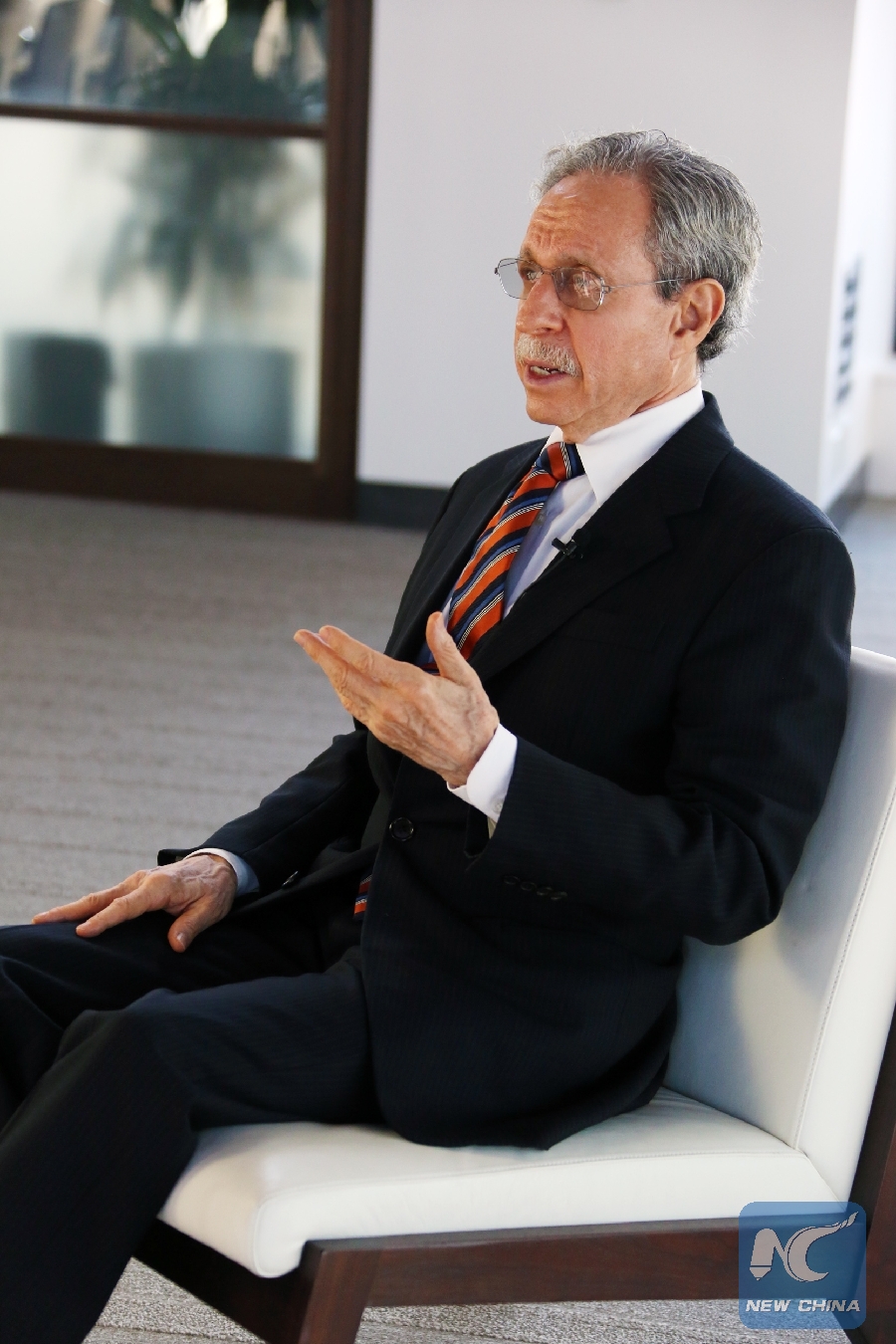
Robert Kuhn, a leading China expert and chairman of the Kuhn Foundation, is interviewed by Xinhua in New York, the United States, on Oct. 23, 2018. (Xinhua/Li Rui)
NEW YORK, Oct. 24 (Xinhua) -- The China International Import Expo (CIIE), to be held in Shanghai on Nov 5-10, is a symbol of win-win cooperation which China has long championed in handling foreign relations, a leading China expert said.
"It's one of the few things in the world that has really no downside. It is all positive for everyone," Robert Kuhn, chairman of the Kuhn Foundation, said in an interview with Xinhua on Tuesday.
The CIIE, the first-ever Chinese fair focusing exclusively on imported goods and services, is expected to draw more than 2,800 companies from over 130 countries and regions.
There are multiple reasons that so many companies are attending the event, Kuhn said, "the obvious reason is to generate revenues and profits. They do that for their shareholders and their careers."
More importantly, he said, it is because of "the dynamism of the Chinese market."
"China is in most areas, either the world's largest market, or will become the world's largest market and no company in this world can afford not to be in the Chinese market," said Kuhn.
China is expected to import 10 trillion U.S. dollars worth of goods and services in the next five years, according to China's Ministry of Commerce.
Even companies that don't do too well in the Chinese market due to strong competition also have to be in China in order to become a "worldwide player," he said.
"There are very few industries in the future where companies can, and will be able to compete on a global basis or even in their home country, if they are not in the Chinese market, being in touch with the latest trends, or the latest problems or challenges," Kuhn added.
"So to large numbers of companies, particularly in technologies and new areas, to be in the Chinese market is not an option. It's essential for them," he said.
For U.S. companies doing business with China, the trade tensions between the United States and China are really "a distraction," Kuhn said.
"They're unhappy with it. It's beyond their areas of expertise. They really don't want to deal with the problems of the bigger macroeconomic, political, or economic or geopolitical matter. They only want to deal with the nuts and bolts of their own business. And to be successful, they need to be in the Chinese market," he explained.
On the other hand, Kuhn said, "China is doing it (CIIE) for its own benefit and the benefit of its own industries and its own people."
"Obviously, the primary interest of (the Chinese) government is to elevate the standard of living of the people," he said.
China has gone through a phase of cheap labor during which migrant workers were willing to work for very low wages that were still much better than their earnings on the farms, he said, "but that phase is passed ... people want more goods and more quality goods."
By boosting imports as symbolized by the expo, the country also encourages domestic companies to be "more innovative and more productive on their own," he said.
"Because if they have a closed market, they can sort of be more lazy in their corporate endeavors... But now you have foreign entries into the market, it forces the Chinese companies to do better," he added.

